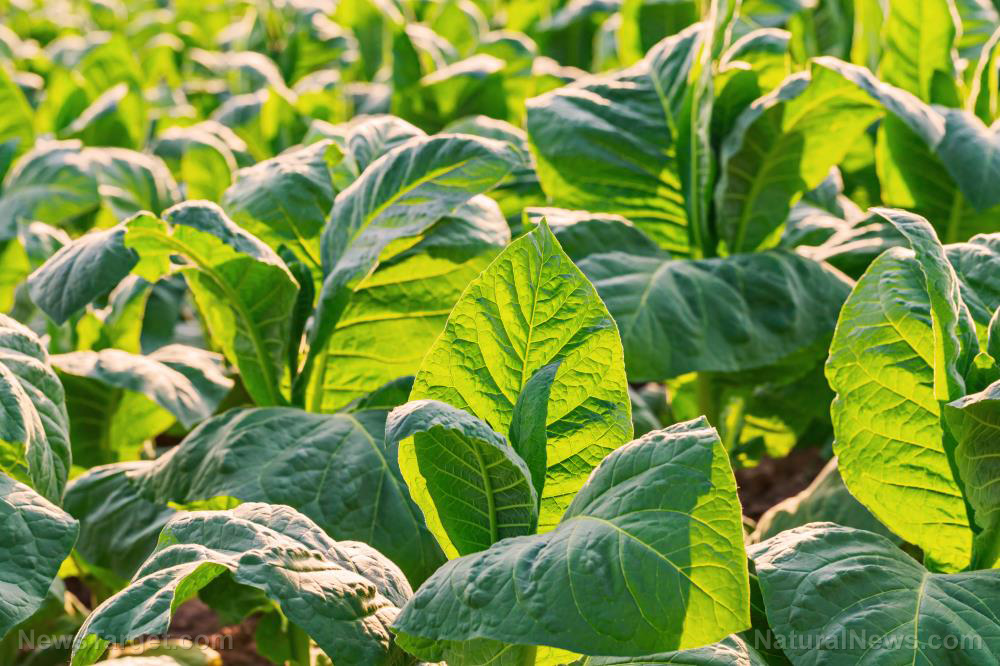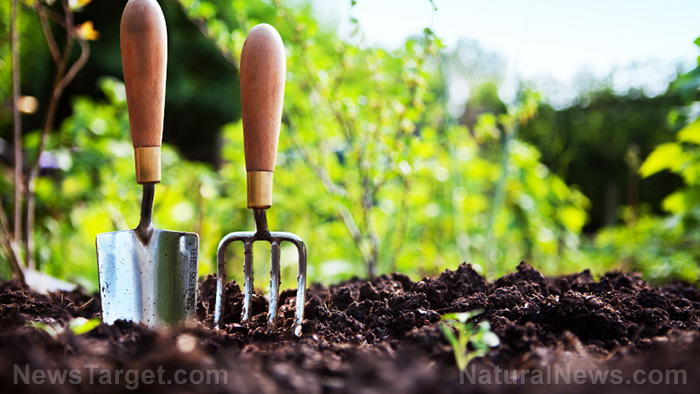
Below are 12 herbs with many medicinal uses that you can find in the wild or grow in your home garden. (h/t to PrepperFortress.com)
Alfalfa (Medicago sativa)
Alfalfa is often used as feed for livestock because it is full of nutrients.
Alfalfa is considered the "father of all plants," and its roots can grow 20 to 30 feet deep. It contains a lot of protein for a plant.
Alfalfa contains vitamin K and other essential nutrients, such as vitamin C, copper, folate and manganese.
Alfalfa sprouts contain the same nutrients as mature alfalfa and are also low in calories. A one-cup serving (33 grams) of alfalfa sprouts only has eight calories.
Herbal remedies containing alfalfa can be used to relieve morning sickness, nausea, kidney pain and urinary discomfort.
Alfalfa is a powerful diuretic and stimulant, so it can help energize your body after a bout of illness. It is also a natural liver and bowel cleanser, and long-term use can help you maintain healthy blood cholesterol levels.
You can purchase alfalfa seeds and sprouts and eat the leaves after harvesting.
Alfalfa seeds or dried leaves can also be taken as a supplement. The seeds can be sprouted and eaten as alfalfa sprouts.
Chaga (Inonotus obliquus)
Chaga is an herbal tonic for the immune system.
This medicinal mushroom can help protect against tumors, cancerous cells, autoimmune diseases and environmental stressors like heavy metals, pollution and radiation.
Ginseng (Panax ginseng)
Ginseng is a known tonic remedy. For centuries, ginseng has been considered the "king of medicinal tonic herbs."
In Traditional Chinese Medicine (TCM), ginseng is used as an adaptogen and energizer. It can also help calm the spirit, eliminate anxious and stressed qi/chi (life energy), open the heart and strengthen the mind.
Both Asian and American ginseng have been used to strengthen the heart, kidneys, liver, lungs and spleen.
Horsetail (Equisetum arvense)
Horsetail is a popular tonic plant that can be used to heal bones and wounds because of its high silica content.
Horsetail also contains high amounts of calcium and other minerals that are needed in bone alignment and connective tissue and skin repair.
Horsetail remedies are also used for immune regulation and to support kidney, eye and hair health. (Related: Homesteading 101: How to start your own medicinal herb garden.)
Korean mint/hyssop (Agastache rugosa)
Most mint or Mentha species, such as regular mint, spearmint, Korean mint and apple mint, offer plenty of health benefits. However, you must avoid pennyroyal because it is poisonous.
Mint is a well-known herb that is used to soothe headaches, relieve nausea and stomach pain, and reduce nervousness and fatigue.
Korean mint, also known as hyssop or Indian mint, is an antiviral that can be used as a home remedy to fight colds and the flu.
You can eat mint leaves whole, use them to garnish food or make mint tea to enjoy their many health benefits.
Mangosteen (Garcinia mangostana)
Mangosteen is considered the queen of tropical fruits.
A delicious fruit, the peel of the mangosteen is one of the richest vitamin C sources known to man. Mangosteen also contains antioxidants with anti-aging and longevity-promoting properties.
Mangosteen can help boost the endocrine and immune systems and supports the healing of wounds and damaged nerves. It can also assist in weight loss.
Moringa (Moringa oleifera)
Moringa, also known as the "miracle tree," is full of beneficial antioxidants, minerals, protein and fiber. It also has natural cleansing properties.
Moringa is known for its ability to supply sustainable energy, support healthy blood pressure and provide adrenal support.
Moringa also acts as a coagulant, attaching itself to harmful elements and toxins and helping the body flush them out.
Nettle (Urtica dioica)
Nettle is a natural remedy that promotes good health and longevity, thanks to its anti-inflammatory, bone-building, blood-nourishing and testosterone-building qualities.
Nettle leaves and seeds are also used in nerve repair and as a central nervous system regulator.
Nettle roots have testosterone- and prostate-supporting properties, and it is a great energizer that both men and women can benefit from.
Reishi (Ganoderma lucidum)
Many studies have looked into the chemistry and therapeutic benefits of mushrooms like reishi.
Reishi is an immune modulator that can help restore the immune system, and it is often used for therapies before and after cancer treatment.
The polysaccharides in reishi mushrooms have cancer-fighting properties. Reishi is an amazing TCM herb that can support lung and heart health. It can also help lower bad cholesterol and triglycerides levels.
Sage (Salvia officinalis)
Sage was used as a preservative for meat before the invention of refrigeration.
Sage is a useful herb with anti-inflammatory, antioxidant and antifungal properties. It can support healthy digestion, relieve cramps, treat diarrhea, dry up phlegm, fight colds and reduce inflammation and swelling.
Sage can also be used to make a healing salve for cuts and burns.
Tulsi (Ocimum tenuiflorum)
Tulsi, or holy basil, is an adaptogen that's used in Ayurveda to support digestive health. Tulsi can also support heart health and has anti-inflammatory properties.
You can use tulsi to lower cholesterol levels, prevent hypoglycemia and relieve stress by calming the nervous system.
The herb can also be used to prevent migraines and repair skin damage topically and internally.
Turmeric (Curcuma longa)
Turmeric is an anti-inflammatory root that is also full of vitamin C.
Cook with turmeric daily or drink turmeric tea or golden milk to fight inflammation by alkalizing and soothing your digestive system and liver.
Turmeric can be used to support healthy joints, muscles, soft tissue and skin.
Learn more about other medicinal herbs and herbal remedies at Herbs.news.
Watch the video below to learn more about the health benefits of turmeric.
This video is from the Health Ranger Store channel on Brighteon.com.
More related stories:
Natural remedies: How to make herbal salves and herbal infusions at home.
Feeling the sniffles? Check out these herbs for allergy relief.
Herbal medicine cabinet: 9 Herbs for wound care.
Sources include:
Please contact us for more information.






















